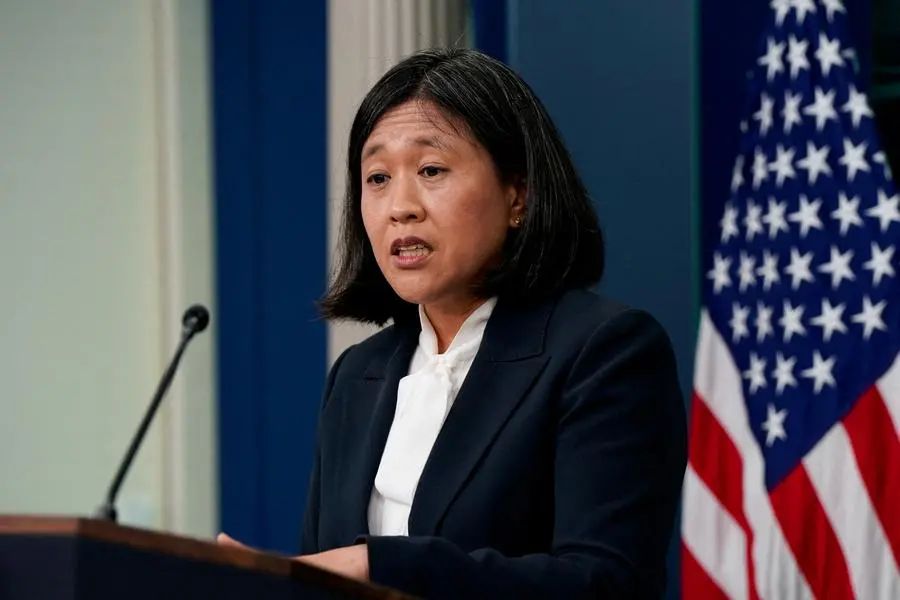PHOTO
WASHINGTON: A bipartisan group of U.S. senators on Wednesday called on U.S. Trade Representative Katherine Tai to stop "secret negotiations" with Mexico, Canada and Colombia that they say would weaken investor protections in some U.S. free trade deals during the Biden administration's final days.
The letter, led by Senate Finance Committee Chairman Mike Crapo, a Republican, and the panel's top Democrat, Ron Wyden, said Tai was seeking to reach binding agreements on legal interpretations of investment protections before President-elect Donald Trump takes office on Monday.
A source close to the trade talks rejected the senators' characterization of the talks as secret, insisting that the U.S. Trade Representative's office had consulted members of Congress despite no legal requirement to do so.
USTR officials did not respond to Reuters' request for comment on the matter.
The Inside U.S. Trade newspaper quoted an unnamed USTR official as also saying that there were consultations, but that Congress had delegated the authority for trade deal interpretations to the agency.
The talks may alter how investment disputes would be handled in the U.S.-Mexico-Canada Agreement on trade (USMCA), the U.S. Colombia Trade Promotion Agreement and the Dominican Republic-Central American Free Trade Agreement (CAFTA-DR).
"Unfortunately, USTR is pursuing substantive changes to congressionally approved trade agreements on an abbreviated timeline, out of the view of the public, and without meaningful congressional consultation," they wrote.
The USTR should conduct such negotiations under "robust consultations with Congress" and seek to use any changes to gain trade concessions with Mexico, Canada and other partners, the senators said.
A spokesperson for Trump's transition team did not immediately respond to a request for comment.
When the U.S. Chamber of Commerce first raised concerns about the USTR discussions in December, the agency denied that there were secret, formal negotiations underway.
Since USTR never announced the talks, the exact changes that Tai is seeking have not been made public.
But Colombia's president, Gustavo Petro, has said he wants to renegotiate the country's U.S. trade deal to end investor-state dispute settlement (ISDS) provisions that allow companies to use third-party tribunals to arbitrate investment disputes, which have led to large damage claims against his government.
DEMOCRATS ON BOTH SIDES
A group of 37 Democratic lawmakers in December urged Tai to eliminate ISDS tribunals, arguing that they give corporations too much power against legitimate government actions and make it easier for them to move American jobs overseas.
But since then, a growing number of Republican lawmakers, along with several Democrats, have decried the discussions, arguing that weakening investment protections will undercut American companies.
Last week 26 House of Representatives members, including 16 Republicans and 10 Democrats sent Tai a letter, expressing concerns that the talks may end a USMCA provision that allowed U.S. firm Vulcan Materials to pursue claims against Mexico over a new nature preserve that has impaired its limestone quarry and port on the Yucatan peninsula.
The Vulcan quarry is a key supplier to infrastructure projects in the southeastern U.S.
"What Mexico has done is stepped in and stolen this property. It's expropriated it," Republican Senator Bill Hagerty told Fox News Channel on Sunday, referring to the Vulcan quarry. "And what Biden is doing here at the 11th hour is trying to hand this over to Mexico." (Reporting by David Lawder in Washington; Editing by Nia Williams and Saad Sayeed)





















